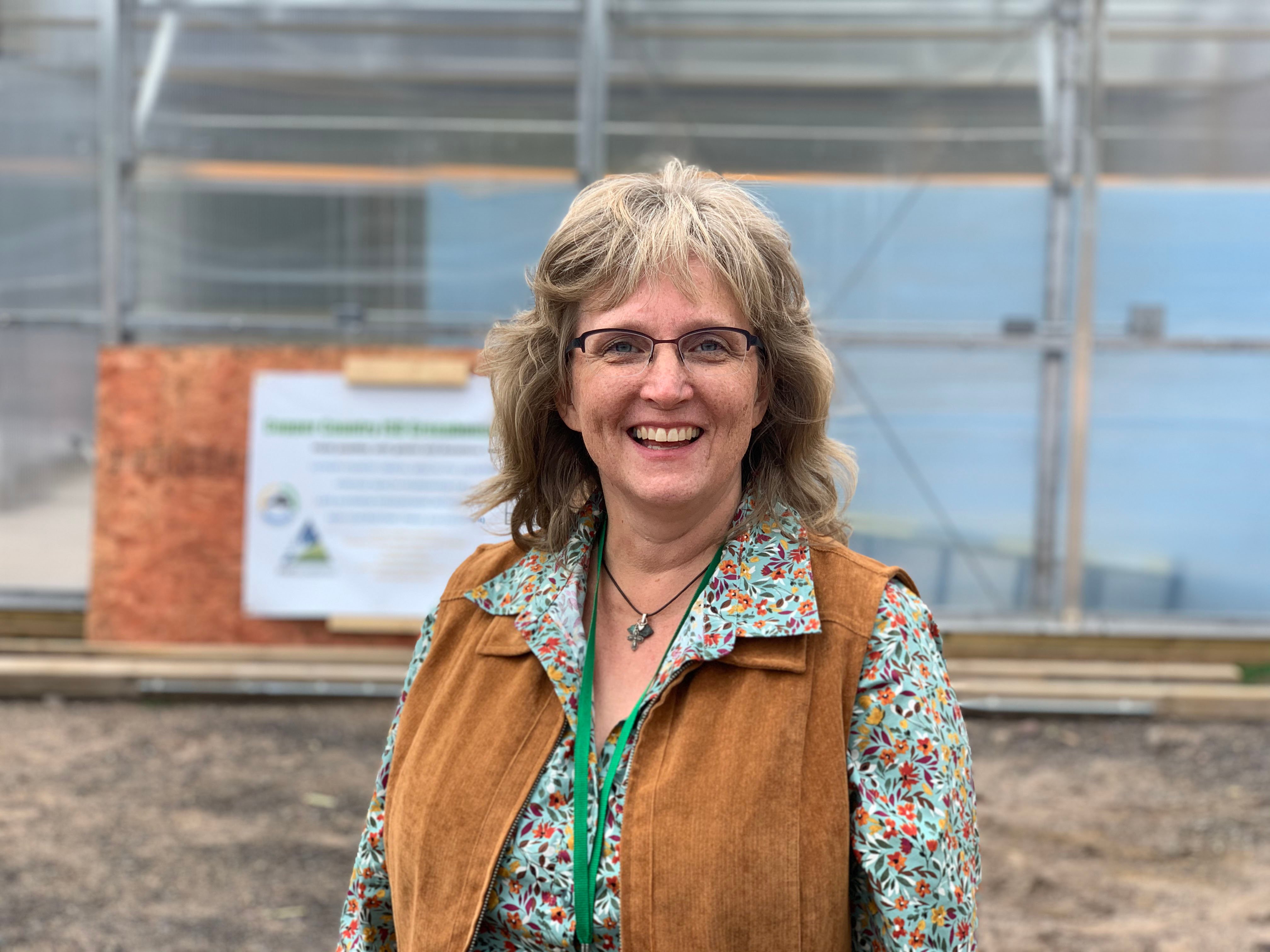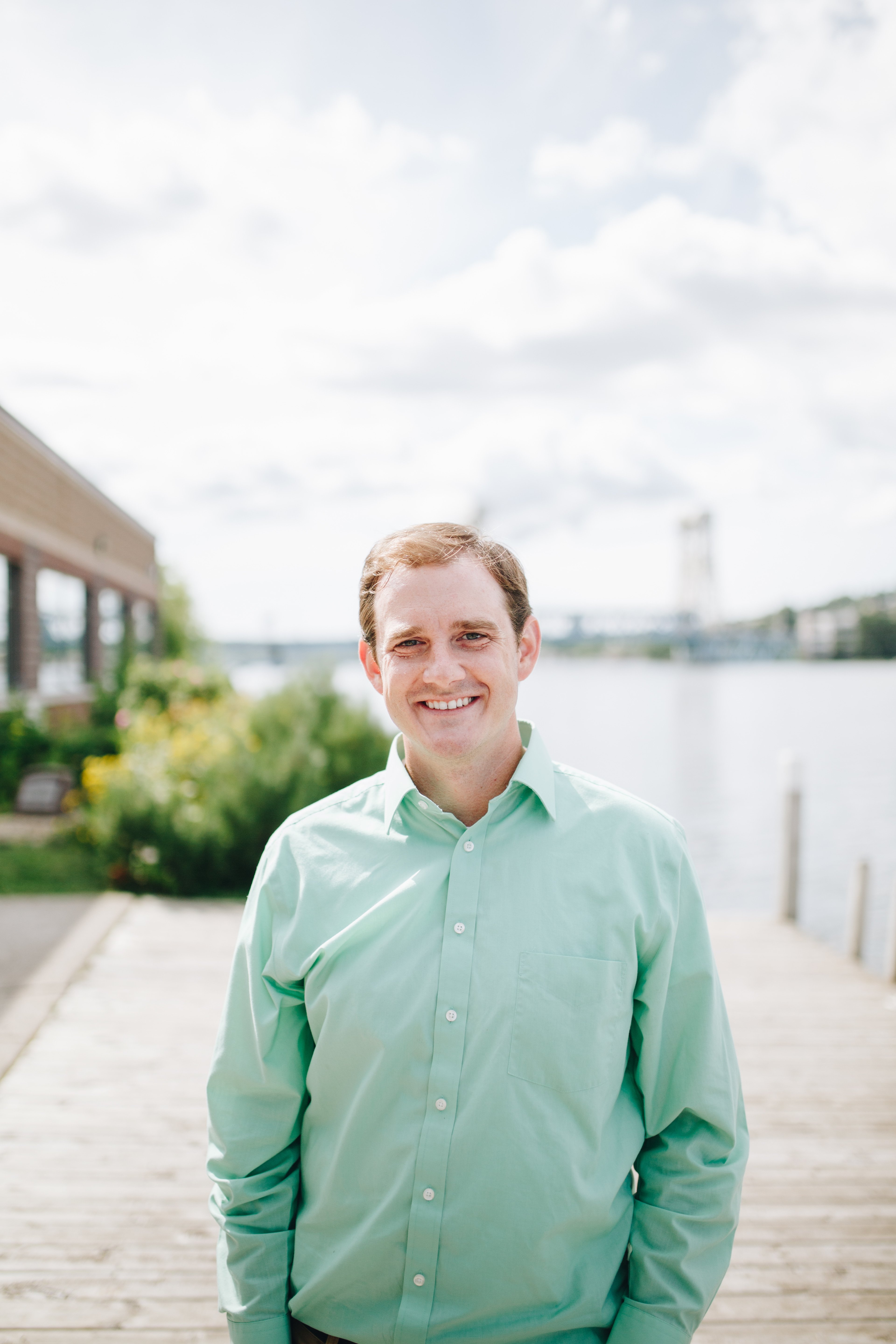Podcast: Karyn Juntunen discusses school gardens, seed saving and more
February 17, 2021 | By Michael H. Babcock
In the latest PHF Podcast Karyn Juntunen from the Copper Country Intermediate School District joins host Michael H. Babcock and Portage Health Foundation’s (PHF) Director of Community Health Michelle Seguin, M.D. to discuss school gardens, community gardens, seed saving, gardening in general and an upcoming virtual presentation Juntunen will be leading.
 The podcast starts with updates to the CCISD Greenhouse Project, which was completed in 2019 at the CCISD’s main campus in Hancock. The greenhouse is now completely operational, and was used over the last year to virtually help students better understand the process of growing. Juntunen also unveils her plans for what will happen this spring, including their popular fundraiser of selling “the best” starter plants.
The podcast starts with updates to the CCISD Greenhouse Project, which was completed in 2019 at the CCISD’s main campus in Hancock. The greenhouse is now completely operational, and was used over the last year to virtually help students better understand the process of growing. Juntunen also unveils her plans for what will happen this spring, including their popular fundraiser of selling “the best” starter plants.
From there Dr. Seguin introduces last year’s community garden projects. The foundation funded nine projects last year. One specifically discussed is the Ontonagon Village Housing Commission project’s pedestal and raised bed gardens.
To finish, Juntunen introduced her the Lake Superior Stewardship Initiative learning Series. Abbey Palmer from MSU Extension office and her will be hosting Seed Science & The School Garden on Wednesday, March 3 from 4:30 to 6 p.m. This is a free event open to teachers, community partners and parents. Those interested can sign up here.
Lake Superior Stewardship Initiative learning Series
The Lake Superior Stewardship Initiative (LSSI) Professional Learning Series is designed to enhance Great Lakes stewardship, facilitate outdoor learning, deepen understanding through place-, problem- and project-based learning opportunities and foster a community of learners. All educators and community members are welcome. The next event is March 3 and features Karyn Juntunen from the CCISD and Abbey Palmer from the MSU North Farm. Register here.
- The presentation took place on March 3. You can watch the recording here.
Local Seed Saving Resources
- The Portage Lake District Library has long prided itself on making materials and resources available to all district residents. In an effort to encourage users to grow their own flowers and produce, they announced the addition of a seed exchange to their collection last year. Library staff have been working to convert a 1920s-era card catalog into a small, start-up seed library at PLDL. Community members will have the opportunity to take home seeds to grow their own flowers and food. Packets of flowers and vegetable seeds will be sorted throughout the drawers of our repurposed card catalog. Participants are welcome to check out packets, plant the seeds, and then return new seeds once their own plants sprout. The service will be available to all visitors, not just those with a library card. Users are asked to use a sign-in sheet to detail what seeds they have “checked out.”
- Keweenaw Seed Swap and Plant Exchange Facebook Group
Quotable Moments
- “I never thought of doing a virtual classroom with the greenhouse. Now we’re using a Google Classroom in the ISD overall, and I made a Google Classroom for the green house. I post lessons on there, and videos for the other teachers to use. ... We sent a sunflower seed packet with the students, and it was engaging for the students. They took pictures of their flowers, and I took pictures of the flowers in the greenhouse to compared things in their classrooms and houses to what the greenhouse could do teaching them about the greenhouse effect.” – Karyn Juntunen, CCISD
- “(The pandemic) opened up some possibilities we never had before.” – Karyn Juntunen, CCISD
- “There’s a plethora of research out there supporting the use of school gardens to enhance student health and wellbeing.” – Dr. Michelle Seguin, PHF
- “If we want to get kids to eat more fruits and vegetables, we need to show them where they come from and the best way to do that is to involve them in the process.” – Dr. Michelle Seguin, PHF
- “The greenhouse has a calming effect.” – Karyn Juntunen, CCISD
- “When we consider where we live with our growing season, the greenhouse is such a great tool because you get to spend more time gardening.” – Dr. Michelle Seguin, PHF
- “I have found when you dig up potatoes in front of them, they are just in awe that that’s where a potato comes from.” – Karyn Juntunen, CCISD
- “This area was built on gardeners. We’ve kind of pulled away from that, but I’m seeing this community is starting to step up and realize that we can be self-sustaining.” – Karyn Juntunen, CCISD
- “We’re teaching the life cycle of a seed. That we can save these seeds and we have food for the next year.” – Karyn Juntunen, CCISD
- “(The Community Garden Projects) represented a wide cross section of the community in that the gardens were constructed or are being constructed in a variety of different settings including traditional community gardens, at schools and at residential housing complexes. Those projects were able to provide collaborations between schools and community-based partnerships and opportunities for inter-generational learning.” – Dr. Michelle Seguin, PHF
- “Opportunities where we can learn, grow and eat together are so important.” – Dr. Michelle Seguin, PHF
- “It’s not only talking about the strategies I’ve implemented in my classroom, Abbey has gone all over teaching in classrooms of how to do different lessons with many different ages of students. Incorporating science, math and poetry even into her lessons.” – Karyn Juntunen, CCISD
- “Hands-on is the best way for a lot of people to learn. You learn from your mistakes and you learn from doing. Place-based education is focused on how to get students to learn in the environment, while helping the community and environment.” – Karyn Juntunen, CCISD
Useful Links
- Nine incredible projects increasing food access in Western U.P. - https://www.phfgive.org/news/nine-community-garden-projects-increasing-food-access-2020
- Farmers Market RFP - https://www.phfgive.org/news/farmers-markets-rfp-2021
- Portage Health Foundation helps jump-start incredible greenhouse project - https://www.phfgive.org/news/portage-health-foundation-helps-jump-start-incredible-greenhouse-project
- Learn more about, make a donation to, or subscribe for updates about the Portage Health Food Initiative – http://www.phfgive.org/food

